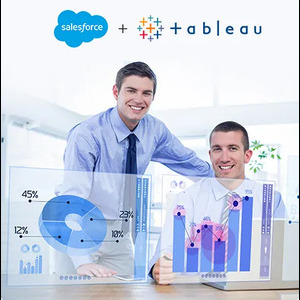
Self-service analytics is reforming the way enterprises harness their data. Tableau consulting plays an important role in guiding organizations through this transformation. Business users can now extract insights without relying on IT departments for every report or dashboard.
Many organizations invest heavily in modernizing their analytics infrastructure but struggle to implement it properly. Expert Tableau consulting services fill this gap by offering the knowledge needed for successful deployment. These consulting firms help create governance frameworks and train business users effectively. Custom solutions from Tableau development services align perfectly with specific business requirements.
The Shift from Centralized BI to Self-Service Analytics
For decades, business intelligence (BI) was tightly controlled by IT departments. Business users had to submit report requests and then wait—often days or even weeks—for answers. The old centralized system has given way to a more flexible model. Business users can now analyze data themselves.
Traditional IT-Led BI vs Business-Led Analytics
Traditional BI works through a gatekeeper model. IT departments handle data collection, cleaning, transformation, and storage in centralized repositories. This creates an unavoidable bottleneck. Self-service analytics gives business users direct data access through accessible interfaces that require minimal technical knowledge. This power transfer from IT to business departments marks a fundamental change in organizations. Tableau consulting firms help organizations establish frameworks that balance centralized governance with distributed access.
Why Self-Service Analytics Became a Necessity
Several factors pushed the rise of self-service:
- Competitive Pressure: Companies using self-service analytics respond to market changes 64% faster than those using traditional reporting methods.
- Resource Misallocation: Highly-paid data scientists shouldn’t spend time building routine reports.
- Decision Delays: Report delays might have been acceptable before the pandemic. Now, even week-old insights offer limited value in volatile markets.
- Rising Expectations: Users want enterprise tools to match the simplicity of consumer technology.
Tableau consulting companies help organizations add self-service layers that connect to existing database environments.
Effect on Decision-Making Speed and Agility
Self-service analytics significantly impacts business performance. Organizations identify market opportunities 57% faster after implementation. Business users with modern self-service analytics tools can help improve customer and employee satisfaction.
Many Tableau consulting companies emphasize data literacy training programs. These programs target both frontline workers and the entire enterprise. Some organizations create dedicated data enablement teams. These teams provide ongoing support so users can work with data confidently.
Tableau development services remove traditional barriers between business users and data. This creates environments where teams test assumptions against data before making major commitments. The result is better outcomes across every business aspect.
How Tableau Consulting Services Enable Self-Service Models
Tableau consulting services give organizations the ability to move from IT-dependent coverage to business-led analytics. Expert guidance helps businesses build capabilities that let team members create insights on their own without constant technical support.
Role of Tableau Consulting Firms in Platform Rollout
Tableau consulting firms start with small-scale deployments that grow organically. Experts call it the “land and expand” phenomenon. Tableau consultants help set up a Tableau Server implementation for a pioneer group and build frameworks that support wider adoption. They help IT teams support and maintain the growing Tableau community as usage increases. The consultants implement secure, adaptable access to business data through Tableau Server.
Expert consultants implement Tableau Drive methodology that applies Agile best practices to analytics adoption. This method lets larger teams successfully use Tableau with the right governance frameworks. These frameworks create a balance between IT oversight and business flexibility.
Custom Dashboard Development by Tableau Experts
Tableau consultants turn raw, complex data into elegant, available visualizations that boost decision-making. They create:
- Easy-to-use templates and starter dashboards
- Interactive visualizations designed according to best practices
- Documentation of processes and internal knowledge bases
Consultants begin by understanding objectives and confirming data access during Tableau dashboard development projects. They gather requirements, build working prototypes, and document their processes. They also coach clients on visual design best practices throughout the project. This approach ensures dashboards stay functional and valuable long after the consultant’s role concludes.
Training and Enablement for Business Users
Tableau consulting focuses on building internal capabilities through comprehensive training programs. The main goal is to create self-reliant teams that can maintain and optimize their Tableau environment on their own. Consultants create training sessions based on employee skill levels and predicted workloads.
Many consulting firms build internal data communities and champions who continue driving adoption after the project ends. This strategy creates a self-sufficient model where marketing, finance, HR, and operations teams make informed decisions independently. It encourages an analytics culture throughout the organization.
Building a Collaborative Analytics Culture
Tableau deployments go beyond technical setup to build a shared analytics environment. Data communities serve as the foundation of organizations where information flows seamlessly and analytical insights drive decisions.
Creating Internal Data Communities and Champions
A data champions program identifies and motivates enthusiastic users to become leaders, teachers, and supporters within their organization’s analytics community. These champions reduce the workload of central support teams. They model data-driven decisions and create opportunities for teams to work together. Instead of hiring new data-oriented workers, many companies now focus on improving existing employee skills to create a data-driven culture.
Reducing IT Bottlenecks Through Delegated Ownership
Companies can ease the load on valuable IT resources by delegating data ownership to domain stewards who oversee specific information domains. At Origin Energy, for example, these stewards manage access permissions while maintaining accountability and quality across departments, from power generation to finance. Domain-driven approaches let teams optimize proactively because data quality managers understand the business impact of their information.
Governance and Trust in Tableau Deployments
Governance provides the foundation for successful enterprise-wide Tableau deployments. Organizations that change to self-service analytics need effective oversight to protect data integrity while providing access to more users. Tableau consulting helps create frameworks that empower users to access trusted content.
Data Governance Frameworks in Tableau
Tableau consulting companies implement three governance models based on organizational needs:
- Centralized governance: A single authority (typically IT) owns and creates data sources and dashboards for business groups of all sizes. This approach works best when sensitive data requires strict control.
- Delegated governance: The central authority grants access permissions to site administrators or data stewards. Content authors can use certified published data sources to answer business queries.
- Self-governing: Teams share responsibilities between IT and business groups in this collaborative model. Business units control their coverage while following governance standards.
Tableau consulting helps implement the Tableau Data Management Add-on that has Tableau Catalog for tracking data lineage and Tableau Prep Conductor to ensure data quality. Data stewards use these tools to add database descriptions and set quality warnings that alert users about potential risks.
Balancing Autonomy with Security
Tableau development services build security frameworks that safeguard data without limiting analysis. Organizations can publish a single dashboard and deliver tailored, secure views to different user groups through row-level security and granular permission controls. Tableau consulting firms set up role-based access control (RBAC) schemes to define capabilities like Viewer, Explorer, Creator, and Administrator.
Conclusion
Tableau’s self-service analytics have, without doubt, changed how companies work with their data. Tableau consulting services have become key partners in the journey to help companies set up governance frameworks while enabling business users.
The switch to self-service analytics solves several business challenges. It substantially cuts down decision delays that affect competitiveness and frees up specialized talent from routine reporting tasks. Also, it meets users’ growing needs for intuitive data tools. Companies that embrace self-service analytics respond to market changes more quickly. They spot opportunities faster than competitors who still use traditional methods.
Tableau consulting firms start with small platform rollouts that evolve over time. They help set up secure access to business data and ensure powerful analytics experiences. Also, these consultants build custom dashboards that turn complex data into accessible visualizations. This empowers users of all technical levels to derive meaningful insights with confidence.
Training and support are vital parts of successful self-service analytics adoption. Reliable consultants build internal skills through comprehensive programs for varying skill levels. They aim to create self-reliant teams that can run their Tableau environment on their own.
Governance forms the base for company-wide Tableau deployments. The right framework enables access to trusted content, whether centralized, delegated, or self-governing. Security frameworks protect data through role-based access control and row-level security without blocking analysis.
Tableau consulting will remain significant as organizations keep adopting self-service analytics. It helps balance governance with user enablement. Consultants promote environments where data-driven decisions happen organically across all levels. This encourages agility and competitiveness in today’s data-focused business world.




